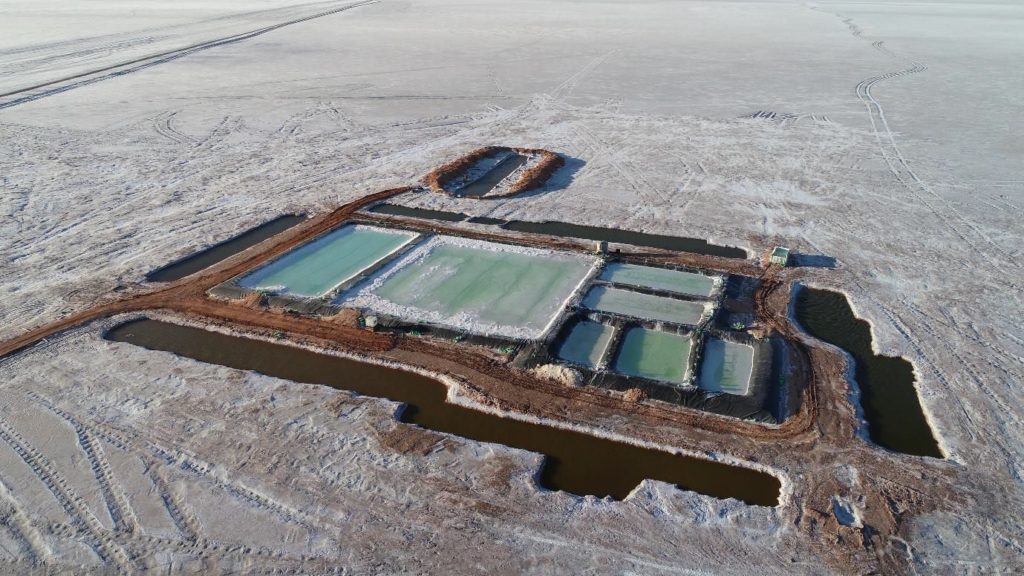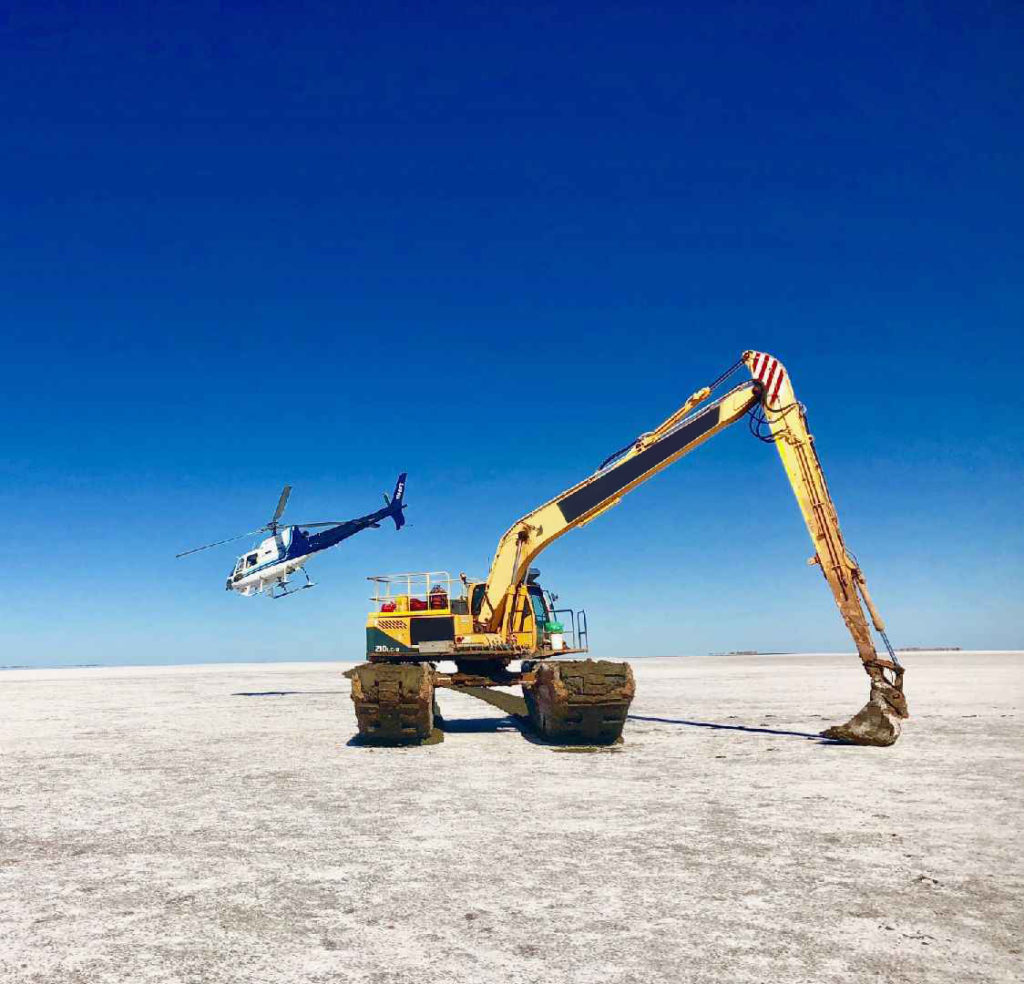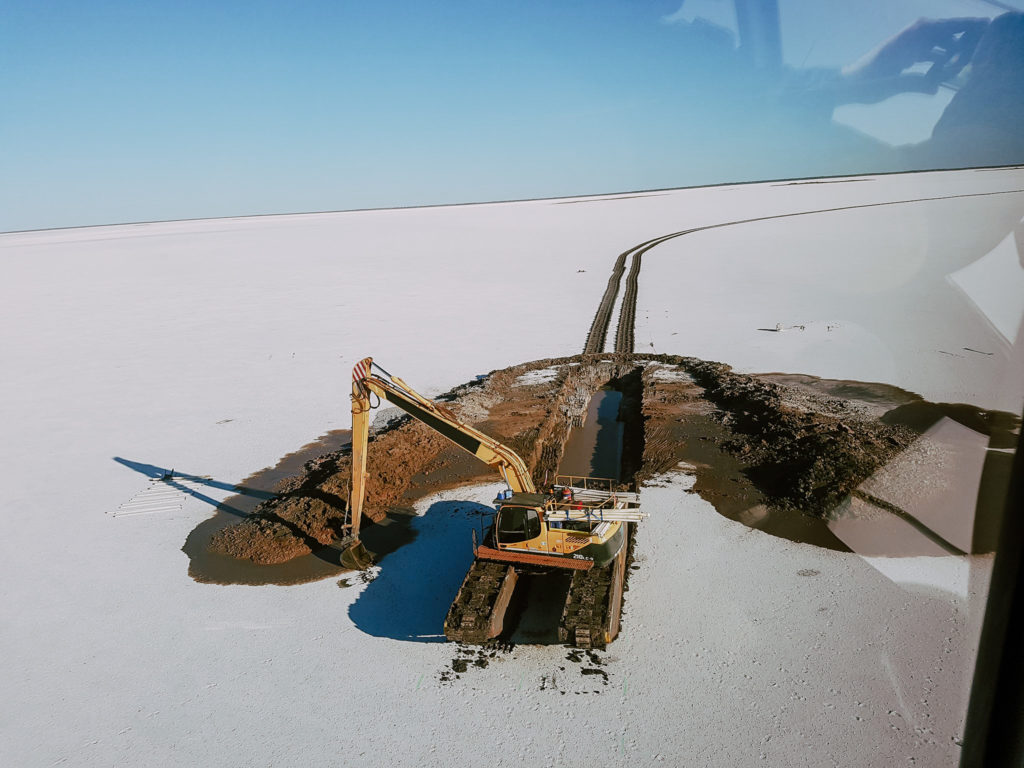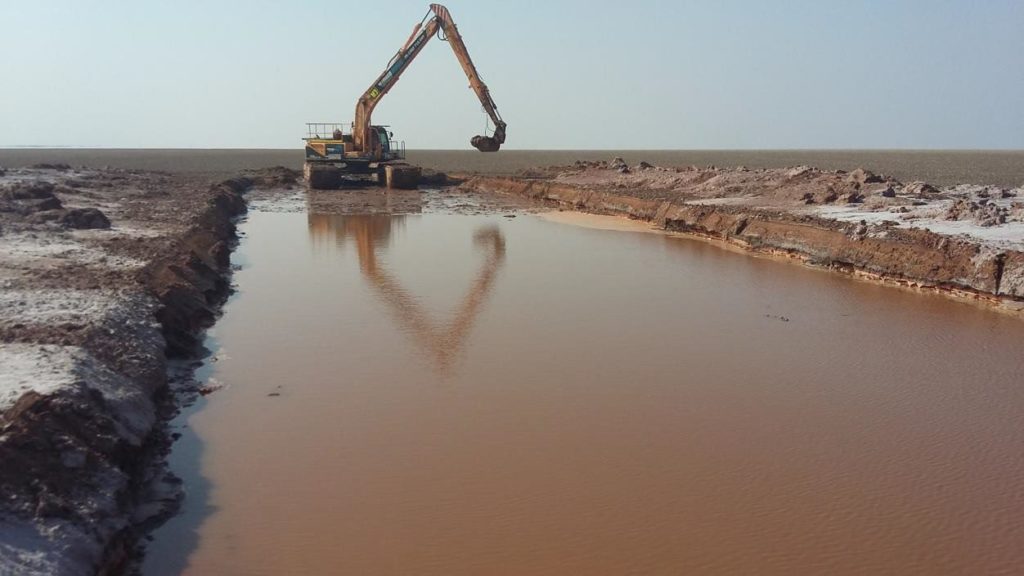We feature a beautiful Job Story written by Pavel Syrtsov,
Remu Business Development Manager
Lake Mackay, a next-level remote location, is the largest of salt lakes in Western Australia and the Northern Territory. With the total area of 3,500km2, Mackay is also the world’s largest undeveloped Sulphate of Potash (SOP) bearing salt lake.

Today Australia imports 100% of the potash it consumes. Once developed, Mackay salt lake could turn Australia from being entirely reliant on importing potash into a globally significant producer of potash fertilizer.
Mackay SOP Project is a brine-hosted potash deposit in a closed basin, salt lake setting. Brine deposits are fundamentally different from hard rock deposits. Brine (i.e. hypersaline groundwater) is contained within the void space of salt lake sediments and is a fluid that is subject to movement. The groundwater within the deposit may be recharged over time, which is different from hard rock deposits that are progressively mined out.

Agrimin Limited, an Australian publicly listed company, is developing the world-class Mackay Potash Project.
The production of SOP begins with the extraction of Potassium-rich brine via an on-lake shallow trench system. The trench network and feed channel are planned to have a length of 546km and an average depth of 4.5m, resulting in 8.5Mm3 of excavated material.
Brine is planned to flow along the trenches and fed into a series of solar evaporation ponds designed to cover a total area of 34km2 at the start-up, where SOP-bearing salts will precipitate. These salts will contain high-grade SOP and will be wet harvested and pumped to the processing plant.
Excavation of the trench system and evaporation ponds is not an easy task when it comes to the conditions of the Mackay salt lake. The top surface has only half a meter of crust with a very soft material consisting of brine underneath, this makes it inaccessible to conventional equipment. The ultra-low ground pressure of an amphibious excavator is required for the task.

Extreme heat in WA, an environment 10x times saltier than seawater, and extreme remoteness do not make the task any easier. Reliability of equipment is an immeasurable value here: all supplies and parts are delivered by helicopter and equipment downtime is the most expensive part of this operation.
Big Float – an amphibious excavator designed and manufactured by Remu in Finland, has already proven itself as the most efficient excavating machine in these conditions, with the most reliable track system.
Trench Excavation in Progress
Pilot trenching, the most significant field program, was started in August 2017 and completed in July 2019. Over a period of two years, the Remu Big Float amphibious excavator has completed the excavation of 22 pilot trenches and 122 monitoring bores. Each trench was excavated with an average dimension of 100m length and 6m depth. The excavated material from the pilot trenches has been used to construct enclosed bunds along the outsides of most trenches. This is also planned in the full-scale design for the trenches. The bunds act to prevent direct ingress of rainwater run-off into the trenches.

In order to obtain data from the entire lake surface, pilot trenches and drill holes are broadly spaced at differing distances apart, generally 10-15km to evaluate different geomorphological areas of the salt lake, and covering the entire area of Mackay. This required excessive equipment relocation. Over a period of two years on Mackay salt lake, Big Float travelled over 800 km (500 miles), crossed 47 sand dunes up to 8m high, was constantly exposed to hard salt, sand and extreme heat – all on a single set of track chains. Significance of this project for the region and the entire country cannot be underestimated.
Today, the main producers of potash are Canada, Russia and Belorussia together accounting for about 2/3 of the world’s production of potash. Ninety per cent of all potash production in the world is Muriate of Potash (MOP) which contains 46% chloride. Mackay’s Sulphate of Potash (SOP) and Sulphate of Potash Magnesia (SOPM) are premium chloride-free forms of potash fertilizer which is increasingly being used for advanced farming practices to minimize agricultural pollution and water usage. Both forms are vital for high-value crops like fruits, vegetables and tree nuts.

The Pre-Feasibility Study completed in May 2018, forecasted an average Mackay SOP production rate of 426,000tpa in the first 20 years, which is double Australia’s own consumption. The study highlights the potential for the project to become the world’s largest and lowest-cost supplier of seaborne SOP. SOP and SOPM produced from the solar evaporation of natural groundwater are cost-efficient (thanks to WA’s extreme heat) and is an organic and eco-friendly fertilizer.
The Agrimin Mackay project is expected to employ a workforce of approximately 200 people during operations and create approximately 600 jobs through the regional supply chain. It will also be a catalyst for investment in regional transport and power infrastructure throughout the central and top end of Australia, becoming significant to the local region and the State of Western Australia.
Remu continues to closely follow the progress of salt lake development and support a world-class project with world-class equipment.


 Copyright 2017-2023 All rights reserved.
Copyright 2017-2023 All rights reserved.